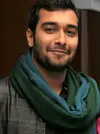Conflict Studies and Management

Research Profile
Today more than ever, skilled peacebuilders capable of understanding how to navigate international and local dynamics to prevent and manage violent conflicts, as well as building pathways for sustainable peace, are urgently needed. The specialization is part of the German leading public policy institutions dedicated to studying conflict prevention, mediation, design, and evaluation of strategies for peacebuilding. Following an interdisciplinary and application-oriented perspective we go beyond the causes and effects of direct violence, and we further interrogate how public policy addresses structural violence in different latitudes. Thus, our Conflict Studies and Management specialization acknowledges the interdependences among different regions, and the importance of considering different levels of analysis such as the international, national, and subnational for the understanding and prevention of direct and indirect violence and issues like social justice, food security, cybersecurity, climate chance, migration, and development, among others. We also acknowledge the legacies of violent conflict, and the challenges that societies face even after direct conflict ends. Following the global pandemic and its impact on state surveillance, radicalization, populism, civil liberties, the proliferation of extremist ideologies, the increases of non-state armed actors, climate insecurity, and autocratisation, numerous challenges to peace, justice, and development around the globe are indicated. Against this backdrop, the master specialization in Conflict Studies and Management aims to promote institutions, attitudes, and social structures to create and sustain peaceful societies through building connections from evidence-based approaches in public policy in the global north and south.
At the Master’s level, these efforts are further sustained by our collaboration with the DAAD in the Helmut Schmidt Program (formerly the Public Policy and Good Governance Program) and collaborations with local NGOs.
People
-
Lecturer (Willy Brandt School of Public Policy)
-
-
-
Jalale Getachew Birru

-
Aline Mugisho
Output
Research Projects
Dynamics of the Peace Process in Colombia




